10 Reasons You Will Never Get Out of Debt
Buried under a pile of past-due bills? Follow these tips to pay off what you owe and get yourself back on firm financial footing.

Profit and prosper with the best of Kiplinger's advice on investing, taxes, retirement, personal finance and much more. Delivered daily. Enter your email in the box and click Sign Me Up.
You are now subscribed
Your newsletter sign-up was successful
Want to add more newsletters?

Delivered daily
Kiplinger Today
Profit and prosper with the best of Kiplinger's advice on investing, taxes, retirement, personal finance and much more delivered daily. Smart money moves start here.

Sent five days a week
Kiplinger A Step Ahead
Get practical help to make better financial decisions in your everyday life, from spending to savings on top deals.

Delivered daily
Kiplinger Closing Bell
Get today's biggest financial and investing headlines delivered to your inbox every day the U.S. stock market is open.

Sent twice a week
Kiplinger Adviser Intel
Financial pros across the country share best practices and fresh tactics to preserve and grow your wealth.

Delivered weekly
Kiplinger Tax Tips
Trim your federal and state tax bills with practical tax-planning and tax-cutting strategies.

Sent twice a week
Kiplinger Retirement Tips
Your twice-a-week guide to planning and enjoying a financially secure and richly rewarding retirement

Sent bimonthly.
Kiplinger Adviser Angle
Insights for advisers, wealth managers and other financial professionals.

Sent twice a week
Kiplinger Investing Weekly
Your twice-a-week roundup of promising stocks, funds, companies and industries you should consider, ones you should avoid, and why.

Sent weekly for six weeks
Kiplinger Invest for Retirement
Your step-by-step six-part series on how to invest for retirement, from devising a successful strategy to exactly which investments to choose.
Do you feel as if you’ll be in debt forever? You’re not alone. According to a 2019 survey by CreditCards.com, 25% of Americans with debt say they’ll never be able to pay off all of the money they owe. That’s a discouragingly large number of people who expect to carry their debt to the grave.
If you’re in this situation, step back, set aside the despair and ask yourself how you got here in the first place. Here are 10 common reasons people fall deep into debt and can’t get out of it. Identify the reasons that apply to you, then formulate a plan using our effective strategies to conquer the root causes of your debt.
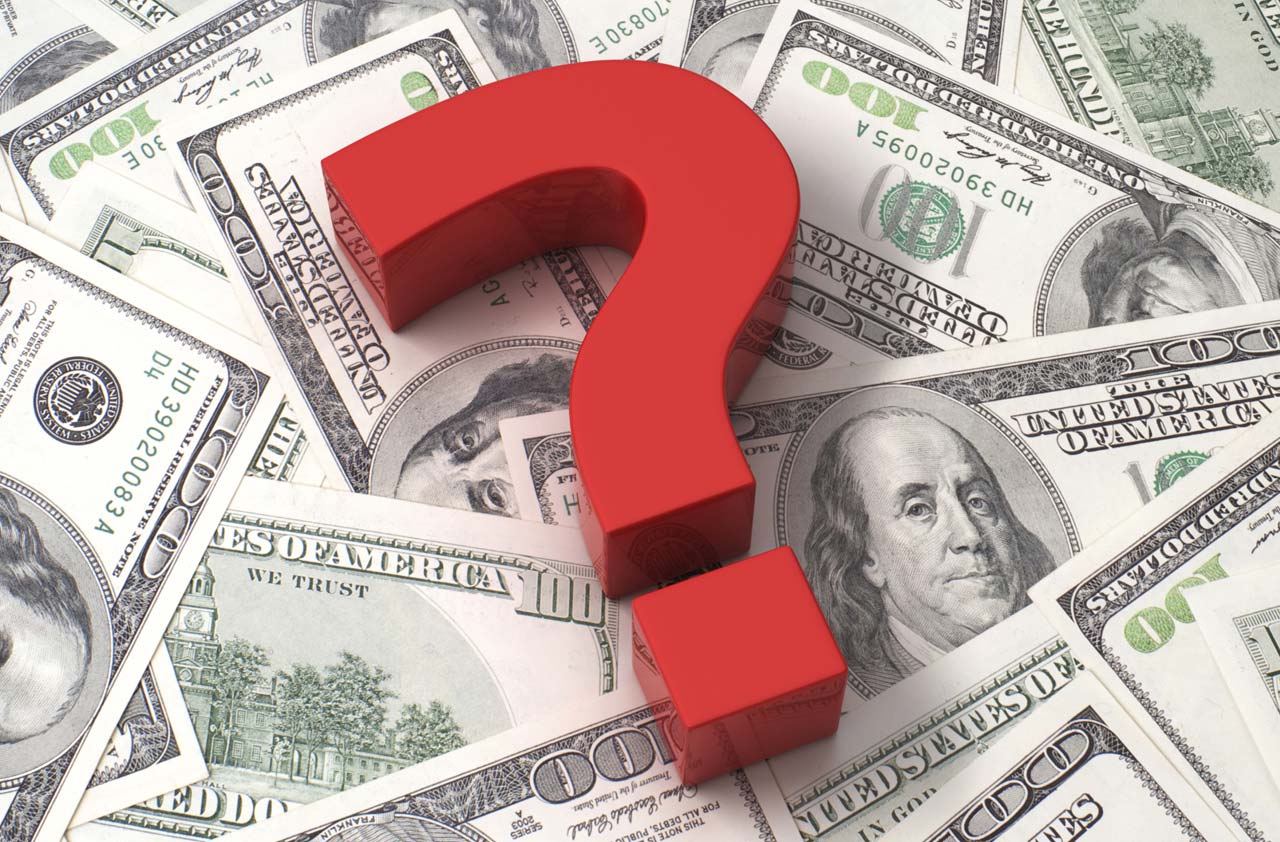
You Don’t Know How Much You Owe
Jeff Rose, a certified financial planner and founder of the Good Financial Cents blog, told Kiplinger that when new clients come to him struggling with their finances, many have no idea how much debt they actually have. A recent U.S. News survey backed up Rose's observation: 21% of poll respondents weren't even sure if they were carrying credit card debt at all. As a result, Rose says, they have no idea how long it will take to pay off debt and don’t realize how debt is preventing them from reaching certain financial goals, such as early retirement. If you don’t take the time to figure out how much you owe, you can’t make a plan to tackle your debt.
Start by making a list of your debts and choosing one debt to pay off first—preferably the one with the highest interest rate. See Wipe Out Debt, One Step at a Time for more on why this approach works. Find room in your budget to boost your monthly debt payments by eliminating unnecessary expenses.
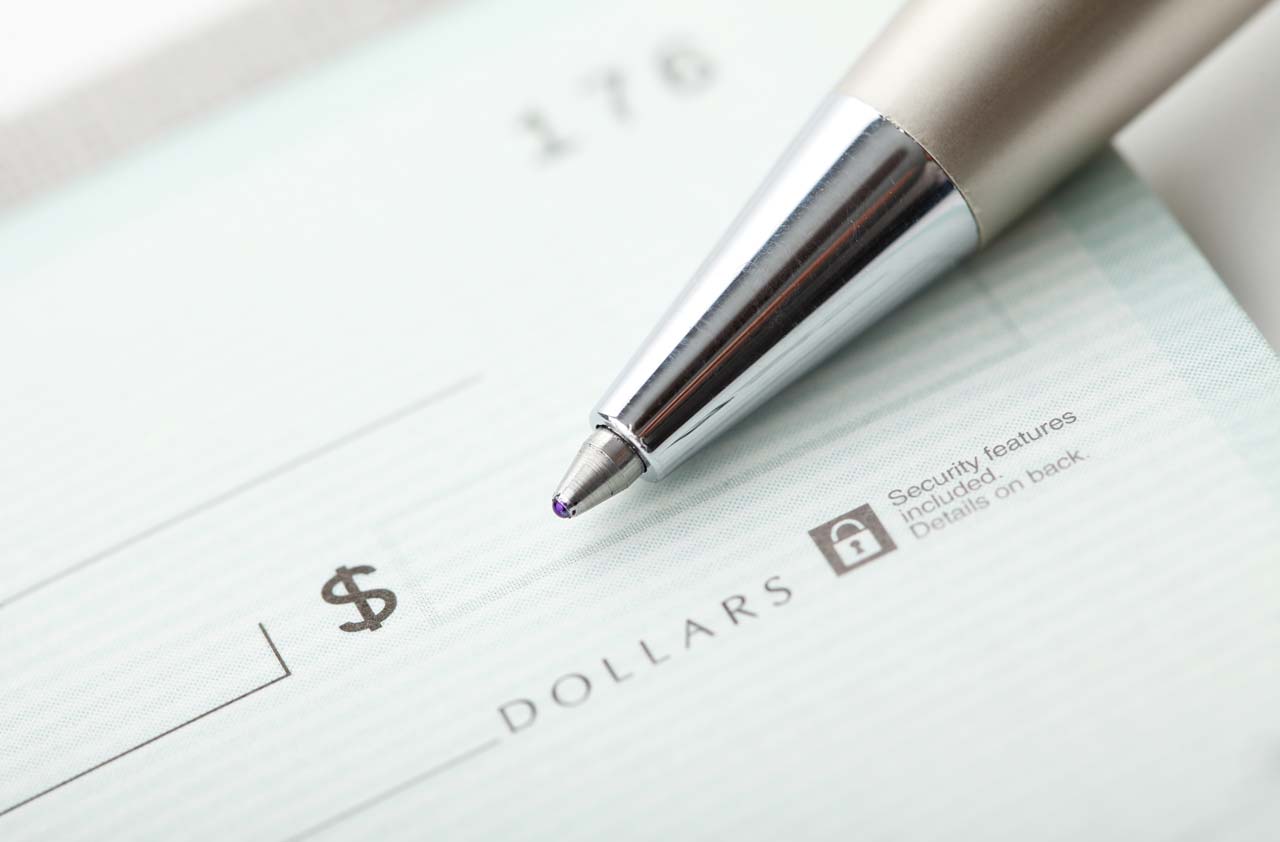
You Pay Only the Minimum
Making minimum payments each month is a guaranteed way to be stuck in debt much longer than necessary. For example, if you have a $5,000 balance on a credit card with a 15% annual percentage rate and make a minimum monthly payment of just 2% of the balance, it will take you more than 27 years to pay off what you owe, according to a Bankrate credit card calculator. Plus, your total payments with interest over that time will amount to $12,518—2.5 times what you originally charged to the card.
Simply by boosting your monthly payment to 3% of the balance rather than 2%, you can cut that payoff time almost in half. If you really buckle down and increase your monthly payment to 5% of the balance, you’ll wipe out your debt in eight years and pay about $1,600 in interest—rather than the roughly $7,500 in interest that would result from making 2% minimum payments. It might stretch your budget to make bigger payments, but over time you’ll save thousands of dollars that can be put to better use, building wealth rather than servicing debt.

Your Mortgage Is Too Big
A mortgage can turn into an albatross around the neck for many Americans. On average, these home loans make up 68% of total household debt in 2019, according to the Federal Reserve Bank of New York. If your mortgage is too much of a load for you to carry, you might need to downsize to a less expensive home, rent instead of owning or even find a roommate to help defray housing costs.
If your goal is to become mortgage-free as fast as possible, and you have the financial flexibility, there are a couple of options. Assuming you have a typical 30-year mortgage, you could increase the amount of your monthly payment, which will help you retire your loan early and save on interest. By paying an extra $100 a month on a 30-year, $200,000 mortgage with 25 years remaining and a 4.5% interest rate, you’d save nearly $21,000 in interest and be out of debt almost four years early, according to a Bankrate mortgage calculator. Alternatively, you could refinance to a 15-year mortgage with a lower rate to shorten the amount of time you’ll be paying off your home and slash the amount of interest you pay. Use a Mortgage Professor refinance calculator to figure out whether you’ll come out ahead by refinancing.

You Took Out Too Many Student Loans
According to the Federal Reserve Bank of New York, Americans owe a staggering $1.48 trillion on student loans, and payments on nearly 10% of those loans are at least 90 days past due. So it should come as no surprise that a big reason many people find themselves stuck in debt is because they took on more student loans than they could handle, says Rod Ebrahimi, an expert on debt management. It can be hard to borrow responsibly when you’re young and don’t understand how that debt will impact you after graduation, he says.
If you have federal student loans, there are smart ways to tackle them including debt consolidation, loan forgiveness and other repayment options. However, some of these approaches can extend the life of your loan. To pay off student debt quickly, consider getting a side job to earn extra money, as Michelle Schroeder-Gardner did. She took paid surveys, got mystery-shopping gigs and did freelance writing in addition to her day job to pay off $40,000 in student loans in just seven months. Read about how she and others wiped out what they owed quickly in Proven Tactics to Overcome Big Debts. If you or your child has yet to enroll in college, try to minimize student loans by applying for grants and scholarships, or avoid loans altogether by attending a college that won’t make you take out student loans.

You Can’t Say No to Your Kids
Leslie H. Tayne, an attorney who specializes in debt cases, told Kiplinger that many of her clients end up in debt because they borrow to purchase things for their kids that they really can’t afford—from extracurricular activities to college tuition. The author of the book Life & Debt notes one overextended client who was spending $5,000 a month to board a horse and pay for riding lessons for her child. “There have to be limits,” Tayne says. If you don’t set boundaries when it comes to spending on your children, she says, you will almost certainly end up in debt.
It’s important to let your children know from an early age what does—and does not—fit into your budget, advises Janet Bodnar, editor at large of Kiplinger’s Personal Finance magazine. “Laying a firm foundation will give you more leverage when their requests become bigger and more expensive,” she notes.
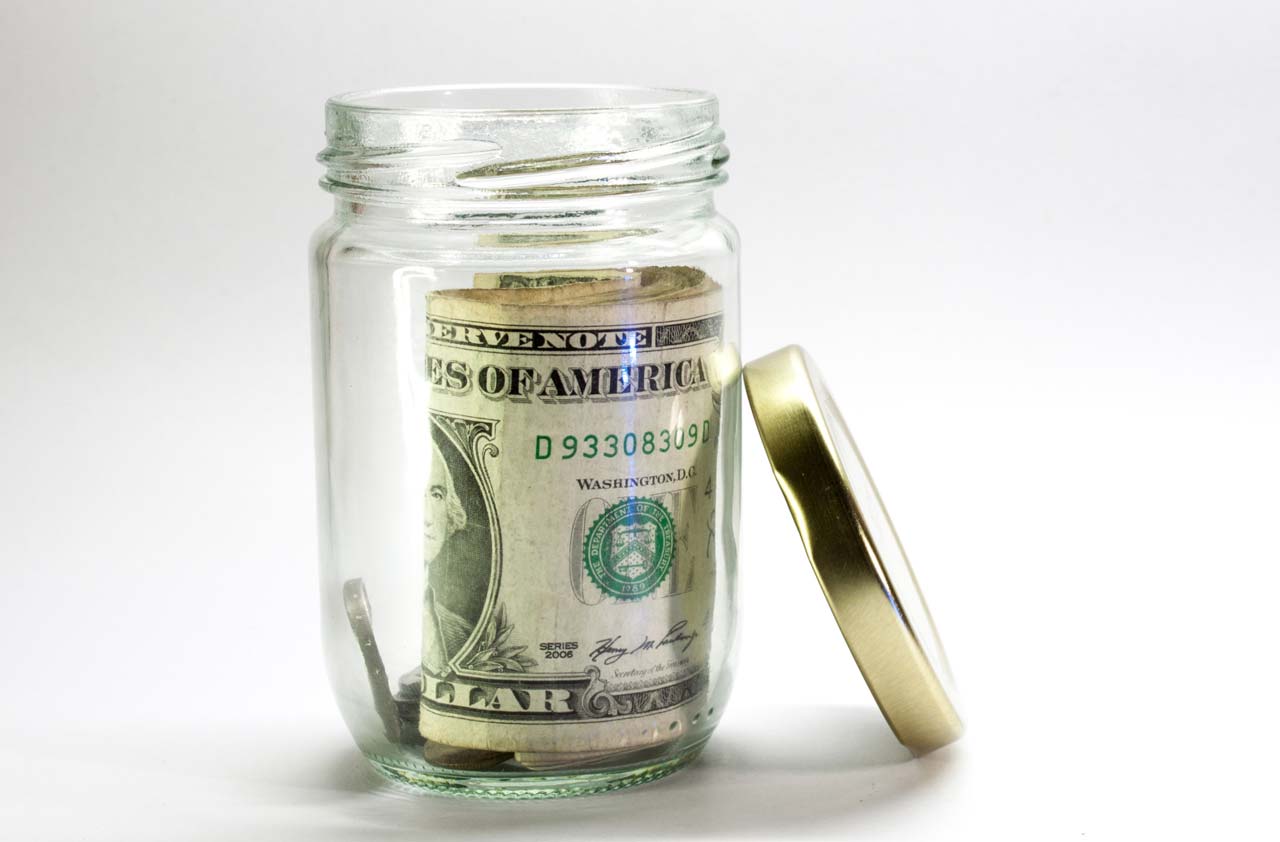
You Don’t Have Money for Emergencies
A major health expense, surprise home repair or sudden job loss could deal a blow to anyone’s finances. Yet, 28% of Americans surveyed by Bankrate.com in 2019 said they have no money whatsoever set aside for emergencies. Zero. Just 25% have enough emergency savings to cover up to three months of living expenses; 17% can cover three to five months; and only 18% have the often recommended six months of living expenses in emergency savings. (The remaining 12% weren't sure.) If you fall into the 28% with no emergency savings at all, you could end up drowning in debt if you have to borrow cash every time an unforeseen expense surfaces.
While you should work your way toward saving six months’ worth of living expenses, you don’t need to save it all at once. Simply set up a separate savings account on your own, make periodic contributions and slowly build up the balance over time. Or, if you need more help try a free service such as Digit to analyze your income and spending habits to determine how much you can afford to contribute to an emergency fund. With Digit, you connect your bank account to the online service, and small amounts of money are automatically transferred from your checking account to a savings account.

You Feel a Sense of Entitlement
People often fall into the trap of buying things because they think they deserve to be rewarded for small accomplishments or are entitled to what their friends have, even if they can’t afford it, says Rose, the Good Financial Cents blogger. They get into the habit of putting those purchases on credit cards, all the while convincing themselves they’ll be able to pay off what they owe later, he says. As Editor Emeritus Knight Kiplinger writes in The Invisible Rich, “that discretionary spending—the chic apartment, frequent travel and restaurant meals, consumer electronics, fancy clothes and cars—crowds out the saving that will enable you to be rich someday.”
It’s OK to reward yourself from time to time when you achieve a significant goal, say losing weight or landing a new client. Just pay cash for it, Rose says. Use Kiplinger's budgeting worksheet to figure out how much money you can spare to buy things you want after covering your necessary expenses. Then set aside a little each month in an interest-bearing savings account to fund those purchases.
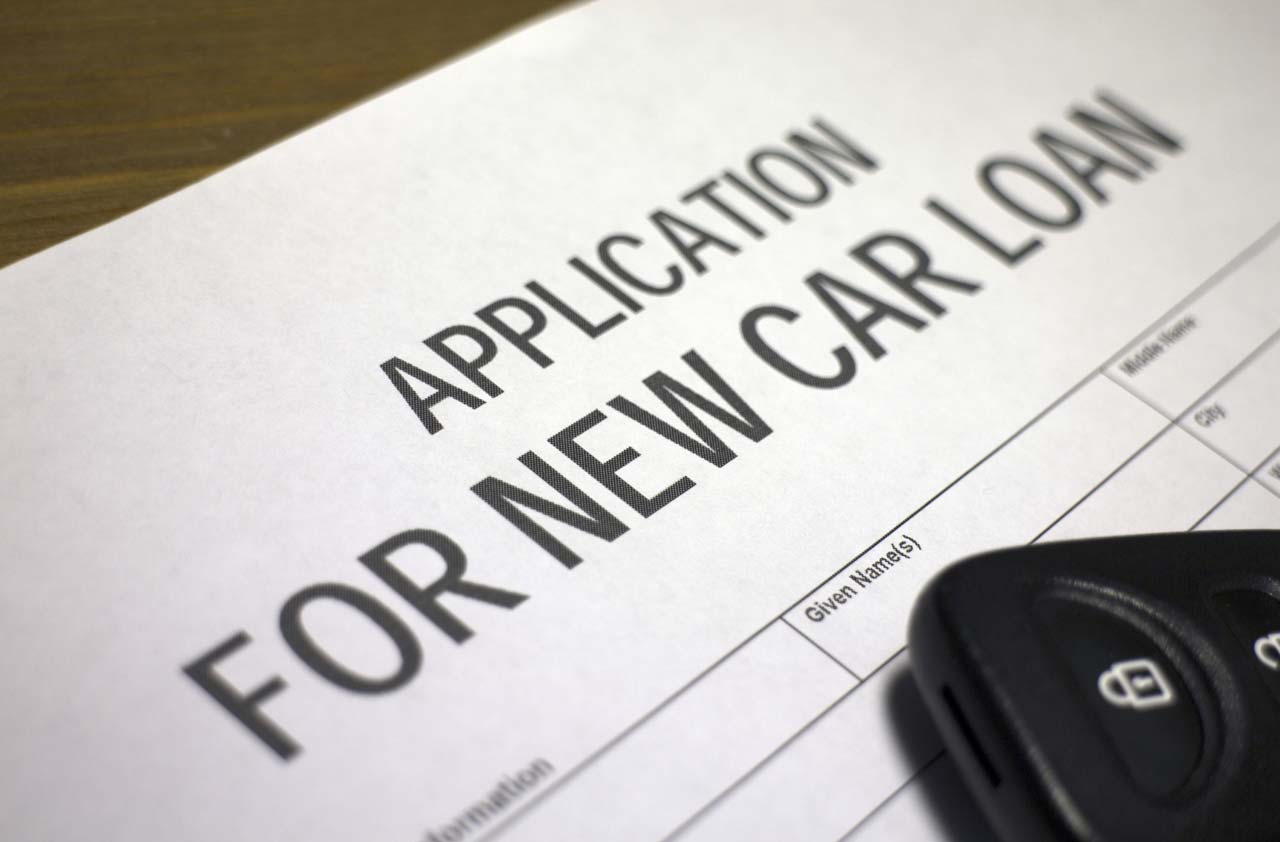
Your Car Loan Is Too Long
You might think a longer-term car loan will make a vehicle purchase easier on your budget. But you’re probably not saving yourself any money by opting for a loan with a term that’s longer than the standard five years. When we spoke with Ron Montoya, consumer advice editor for car-shopping Web site Edmunds.com, he said it's not uncommon for the average annual percentage rate on a six-year car loan to be double the rate of a five-year loan. That higher rate translates into a lot more interest paid over the life of the loan.
Plus, given that the average trade-in age for a car is six years, you would still owe money on your vehicle at that point if the term of your loan is longer than 72 months. You could roll the balance of your old loan into a new loan if you trade in your car for another one, but you'd be increasing the loan amount, in all likelihood increasing your monthly payment and prolonging the life of your debt. And, of course, the resale value of your car declines the longer you own it.
One final tip: Compare car loan rates rates offered by the dealer with rates offered by a credit union. You might be able to save big on interest. These are the best credit unions of 2019, based on our latest rankings, plus here are a few good credit unions anyone can join.
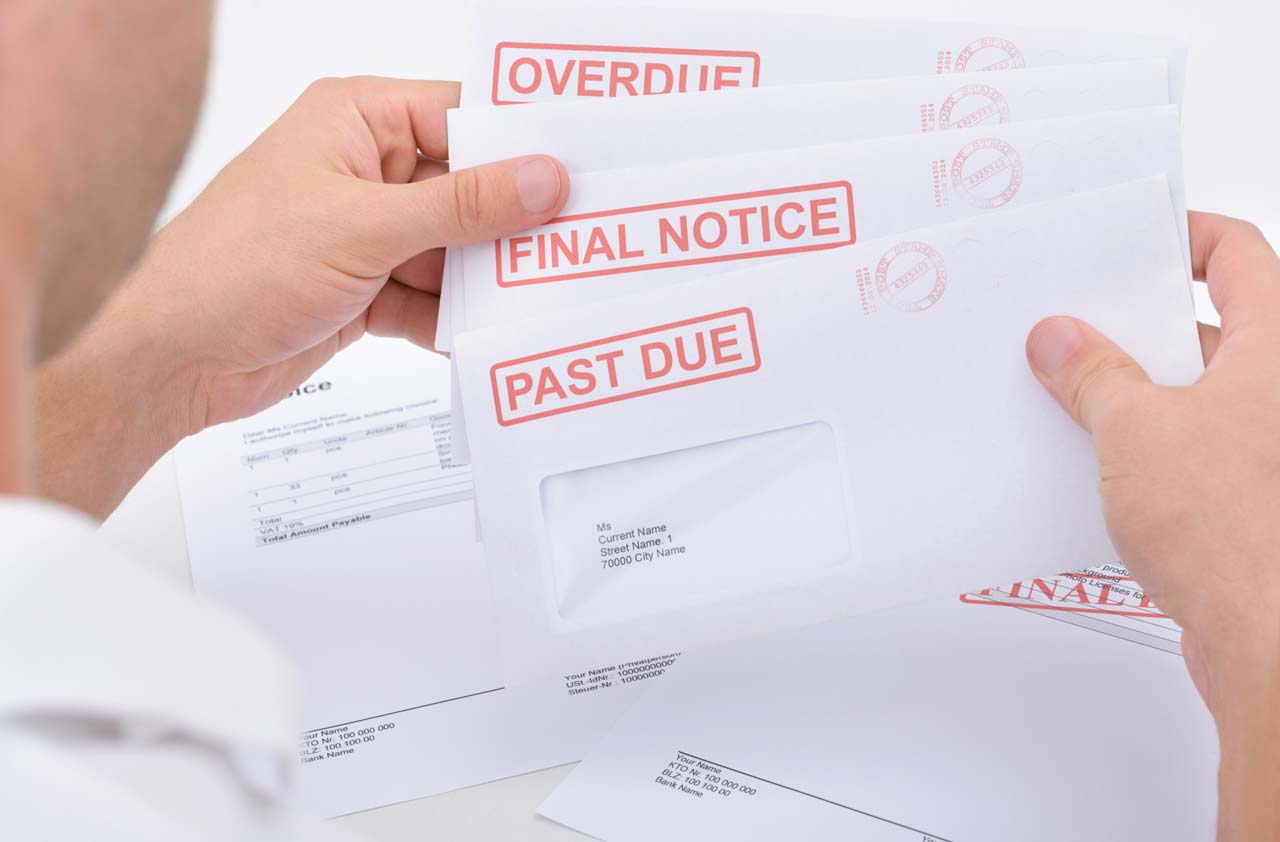
You Rack Up Late Fees
Those fees you’re hit with every time you’re late making a payment might seem like small change. But some can be quite hefty, and they can add up quickly. For example, late-payment penalties for credit cards can climb as high as $39. Pay a few cards late one month, and you could easily fork over more than $100 on late fees alone, plus interest on the overdue balances. That’s real money that you earned that could’ve been used to pay down your debt instead.
If you have trouble making payments on time, set up automatic payments through your bank’s online bill-pay service. That way you won’t have to remember to write a paper check and put a stamp on an envelope several times a month. Or, use a free mobile app such as Mint Bills to manage all of your bills in one place and get reminders when they are due so you aren’t hit with late fees.

Your Interest Rates Are Too High
The higher your interest rates, the more you’ll have to pay to wipe out your debt—and possibly the more time it will take. Say you have a $10,000 balance on a credit card with a 15% annual percentage rate and pay $225 a month. It will take 66 months and $4,688 in interest to pay off your debt, according to a Credit.com card payoff calculator. If your APR was, say, 11.6% instead, you’d be debt-free seven months faster and save more than $1,500 in interest.
You could take advantage of 0% or low-rate balance transfer offers from card issuers if you have good credit. But you’ll need to transfer the balance yet again to another card (and perhaps several times) if you can’t pay off all of your debt during the low-rate promotional period. A better option can be consolidating your high-interest debt into a lower-rate personal loan, says Ebrahimi, the debt management expert. Compare personal loan offers at a loan site such as MagnifyMoney.com, or check with your local bank branch.
Profit and prosper with the best of Kiplinger's advice on investing, taxes, retirement, personal finance and much more. Delivered daily. Enter your email in the box and click Sign Me Up.

Award-winning journalist, speaker, family finance expert, and author of Mom and Dad, We Need to Talk.
Cameron Huddleston wrote the daily "Kip Tips" column for Kiplinger.com. She joined Kiplinger in 2001 after graduating from American University with an MA in economic journalism.
-
 Dow Leads in Mixed Session on Amgen Earnings: Stock Market Today
Dow Leads in Mixed Session on Amgen Earnings: Stock Market TodayThe rest of Wall Street struggled as Advanced Micro Devices earnings caused a chip-stock sell-off.
-
 How to Watch the 2026 Winter Olympics Without Overpaying
How to Watch the 2026 Winter Olympics Without OverpayingHere’s how to stream the 2026 Winter Olympics live, including low-cost viewing options, Peacock access and ways to catch your favorite athletes and events from anywhere.
-
 Here’s How to Stream the Super Bowl for Less
Here’s How to Stream the Super Bowl for LessWe'll show you the least expensive ways to stream football's biggest event.
-
 What to Do With Your Tax Refund: 6 Ways to Bring Growth
What to Do With Your Tax Refund: 6 Ways to Bring GrowthUse your 2024 tax refund to boost short-term or long-term financial goals by putting it in one of these six places.
-
 What Does Medicare Not Cover? Eight Things You Should Know
What Does Medicare Not Cover? Eight Things You Should KnowMedicare Part A and Part B leave gaps in your healthcare coverage. But Medicare Advantage has problems, too.
-
 15 Reasons You'll Regret an RV in Retirement
15 Reasons You'll Regret an RV in RetirementMaking Your Money Last Here's why you might regret an RV in retirement. RV-savvy retirees talk about the downsides of spending retirement in a motorhome, travel trailer, fifth wheel, or other recreational vehicle.
-
 The Six Best Places to Retire in New England
The Six Best Places to Retire in New Englandplaces to live Thinking about a move to New England for retirement? Here are the best places to land for quality of life, affordability and other criteria.
-
 The 10 Cheapest Countries to Visit
The 10 Cheapest Countries to VisitWe find the 10 cheapest countries to visit around the world. Forget inflation and set your sights on your next vacation.
-
 15 Ways to Prepare Your Home for Winter
15 Ways to Prepare Your Home for Winterhome There are many ways to prepare your home for winter, which will help keep you safe and warm and save on housing and utility costs.
-
 Six Steps to Get Lower Car Insurance Rates
Six Steps to Get Lower Car Insurance Ratesinsurance Shopping around for auto insurance may not be your idea of fun, but comparing prices for a new policy every few years — or even more often — can pay off big.
-
 How to Increase Credit Scores — Fast
How to Increase Credit Scores — FastHow to increase credit scores quickly, starting with paying down your credit card debt.


